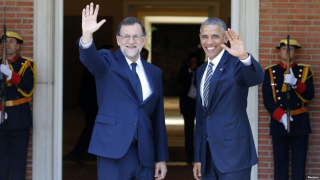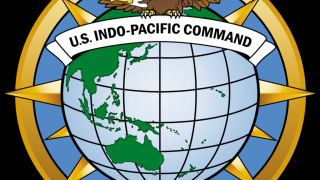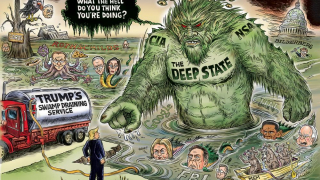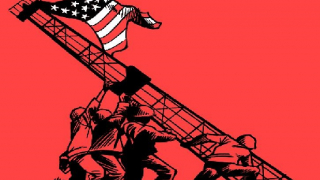Trump and AMLO are not polar opposites: Understanding 2020 United States-Mexico summit
Despite years of insults and confrontation, left-wing Mexican president becomes friendlier with United States president Donald Trump. Time has taught us that Donald Trump is a pragmatic politician and businessman, who has been found to be somewhat susceptible to being pressured and influenced by his advisers. Trump is willing to change direction as long as it is profitable, necessary and high-returning. Long-term confrontation can be expensive and not very convenient. For the United States, the meeting and the ensuing side-by-side pictures was expected send strong signals not only to the region, but also to the whole world. Some key topics for the meeting included: the border wall policy, new United States-Mexico trade agreements, the United States-Mexico-Canada Agreement (USMCA), and a North American coordinated response to the COVID-19 pandemic.
Mexican president Andrés Manuel López Obrador, better known as AMLO, has been a key ally of the Latin American left. After a long winning streak, the Latin American left experienced electoral defeats in a number of former strongholds since 2015. The victories of both AMLO in Mexico and Alberto Fernández in Argentina have been critical for the governments of Cuba, Nicaragua, Venezuela. The prospect of a more united Latin American left has been growing since November 2019, when Fernández and AMLO started to discuss reviving CELAC, a regional diplomatic alternative to the Washington-backed Organization of American States (OAS), as Frank Daniel pointed out (2019). What happens next in Colombia, Brazil and Venezuela will be a key factor in determining the direction and strength of the region’s political wave and trends.
It is very significant that Donald Trump has welcomed such an unlikely ally (Tharoor, 2020). But as geopolitics changes daily, this is not a surprising move at all. Analysts don’t see the leaders emerging from the proceedings with much more than what already has been accomplished. For some, it is unlikely that the United States-Mexico trade deal will drive much new foreign investment in Mexico. Therefore, the meeting has arguably been taken as a symbolic act, even if it was López Obrador’s first foreign trip since being elected in 2018.
There is still much to say about AMLO-Trump meeting. Symbolism plays a large role in how we view, understand, and interpret business, politics, and geopolitics. Dissecting the symbolic gesture of this meeting is important to understand Trump’s stance on regional issues.
Apart from the United States-Mexico border wall policy, one of the main messages of the campaign of Donald Trump is that the United States should deal primarily with its internal problems and hence abandon interventionist policies. The wall-building is a very rich phenomenon that has to be analyzed from sociological, theological, political, ethnological and historical perspectives. Americans want relief from the burdens of global leadership without losing the thrill of nationalist self-assertion.
Before meeting Trump, Mexican President Andres Manuel Lopez Obrador said that he’d be willing to sell gasoline to Venezuela as a humanitarian gesture despite United States sanctions against the South American country (Cattan & Rios, 2020). According to Moisés Rendón and Jacob Mendales (2018), the clear majority of CLAP products originated abroad — specifically Mexico — . Mexico an additional strategic leverage point to assist Venezuela in its mission to survive and feed its citizens. In order to properly contextualize this situation, Bolton’s controversial claims on Venezuela should be addressed and analyzed (Quintero, 2020a; Quintero, 2020b). In spite of Trump administration’s Venezuela policy, Lopez Obrador’s Mexico has supported Maduro. Mexico has stood alone within the once 14-country Lima Group in not recognizing Venezuelan political figure Juan Guaidó. On Venezuela, AMLO has sided with countries like Cuba, India, Russia, China and Turkey. One should acknowledge that there is some gray are here, as India is a key strategic ally of both Venezuelan and United Statesgovernments.
Mexican left-wing leader López Obrador has been criticized for dealing with Donald Trump, a man he himself called a neo-nazi. In an articled published on Politico (2020), Sabrina Rodríguez points out in AMLO went so far as to compare the United States president’s offensive comments about Mexicans to the way Nazis talked about Jews in his 2017 book called ‘Oye, Trump’. Trump’s isolationist nationalism was found out to be insulting to the Mexican people. While Trump’s ability to stay out of each other’s way on domestic issues is a feature that many around the world approve and support, his anti-immigrant ‘invasion’ rhetoric has faced criticism. Nevertheless, Donald Trump has said that he likes and respects López Obrador. For AMLO, the best foreign policy is domestic policy. That sounds like something Donald Trump would say.
Mexican President Andrés Manuel López Obrador on Monday brushed off critics of his planned visit to Washington, arguing President Trump’s rhetoric toward Mexico “has been more respectful” — and it should be taken into account that political discourse is also about marketing and emotion fueling . According to AMLO, there has been a relationship of mutual respect between Mexico and the United States. Amid coronavirus pandemic, even if Trump tried to credit his new wall with stopping both illegal immigration and the covid-19, it should be noted that Trump has of late scarcely mentioned Mexico , at least not directly— a favorite target of his during the 2016 campaign — in recent speeches. At a speech in Arizona earlier in June 2019 touting border wall construction, Trump only once mentioned Mexico, in a sarcastic reference to the border city of Tijuana (Bernal, 2020; Quintero 2020b).
Even if they both have different ramifications and ways that players intrinsically judge them, business strategies are similar to political ones. The main goal of businesses is to make a profit and governments’ goal is to ensure economic stability and growth. Both of them are different but very co-dependent. Politics is not easy and mixing it with business is becoming more popular, especially in the United States of America. The greatest thing in common around. Businesspeople can do make good politicians, and Trump’s America is being run like a business. It is time to keep eyes open for opportunities. Look beyond the labels and you may find a kindred spirit, and even a friend, in someone you never expected. There is much potential to fulfill and space for cooperation to widen.
Donald Trump is not unpredictable — if you think so, then you do not understand him . He is a businessman who portrays himself as an American conservative patriot, an authentic nationalist against the globalist agenda, and the man who wants to put an end to expensive and unprofitable wars — even if he is not totally anti-war . This is was business and realpolitik are about. Ahead of 2020 United States presidential elections, Trump got a chance to show he has Mexico’s leader on his side going into his reelection bid even after all the insults and threats. Further more, he gets to remind Trump supporters and MAGA enthusiasts of the concessions he has just gained from López Obrador to stop asylum seekers from crossing the Mexican border into their country.
Jorge Guajardo, a former Mexican ambassador to China and senior director at McLarty Associates: “Trump doesn’t want to get involved in Mexico and López Obrador doesn’t want to get involved with the United States. The less they have to talk about each other, the better.”
References:
Anria, S. & Roberts, K. (2019). A Right Turn in Latin America?. Aulablog. http://aulablog.net/2019/01/09/a-right-turn-in-latin-america/
Bernal, R. (2020, June 29). Trump’s anti-immigrant ‘invasion’ rhetoric. The Hill. www.thehill.com/latino/505031-mexican-president-trump-has-been-more-respectful-toward-mexico
Cattan, N. & Rios, L. (2020, June 15). Mexico’s AMLO Says Willing to Help Venezuela With Fuel Supplies. Bloomberg. www.bloomberg.com/news/articles/2020-06-15/mexico-s-amlo-says-willing-to-help-venezuela-with-fuel-supplies
Daniel, F. (2019, November 5). Latin American left rising? First stop Mexico for Argentina’s Fernandez. Reuters. www.reuters.com/article/us-mexico-argentina/latin-american-left-rising-first-stop-mexico-for-argentinas-fernandez-idUSKBN1XF0PU
Dreher, R. (2017, February 1). US Threatens To Invade Mexico. No, Really. The American Conservative. www.theamericanconservative.com/dreher/us-threatens-to-invade-mexico-no-really/
Quintero, V. (2020a, June 22). Yes, Bolton’s book does really matter in Venezuela. Let’s find out why. Geopolitica. https://www.geopolitica.ru/en/article/yes-boltons-book-does-really-matter-venezuela-lets-find-out-why
Quintero, V. (2020b, July 2). On isolationism, religion, nationalism and U.S.-Mexico border wall. Geopolitica. www.geopolitica.ru/en/article/isolationism-religion-nationalism-and-us-mexico-border-wall
Pérez-Arguello, M. (2020). Why AMLO’s meeting with Trump is important. Atlantic Council. www.atlanticcouncil.org/blogs/new-atlanticist/why-amlos-meeting-with-trump-is-important/
Rendon, M. & Mendales, J. (2018). The Maduro Diet: Food v. Freedom in Venezuela. Center For Strategic and International Studies. www.csis.org/analysis/maduro-diet-food-v-freedom-venezuela
Rodríguez, S. (2020, July 7). Why Mexico’s president is buddies with Trump despite years of insults. Politico. www.politico.com/news/2020/07/07/mexico-president-andres-manuel-lopez-obrador-friends-trump-350974
Tharoor, I. (2020, July 8). Trump AMLO visit: The U.S. president welcomes an unlikely ally. The Washington Post. www.washingtonpost.com/world/2020/07/08/trump-mexico-amlo-visit/














